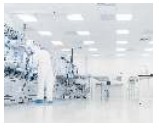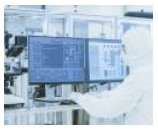Roadshows to Explore Groundbreaking Innovations
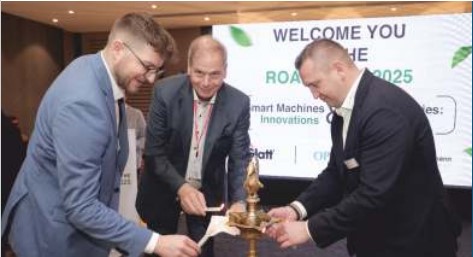 Exclusive roadshows themed ‘Smart Machines & Future Factories: Innovations & Sustainability; presented by Uhlmann India, OPTIMA Packaging Group, and Glatt (India) Engineering, were held across Hyderabad, Ahmedabad, and Mumbai. At these events, decades of expertise united to explore next-generation sustainable processes, advanced facility designs, Annex 1 compliance, turnkey solutions, and cutting- edge packaging innovations.
Exclusive roadshows themed ‘Smart Machines & Future Factories: Innovations & Sustainability; presented by Uhlmann India, OPTIMA Packaging Group, and Glatt (India) Engineering, were held across Hyderabad, Ahmedabad, and Mumbai. At these events, decades of expertise united to explore next-generation sustainable processes, advanced facility designs, Annex 1 compliance, turnkey solutions, and cutting- edge packaging innovations.
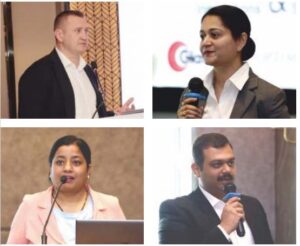 The event, held on 20th January 2025 in Hyderabad, 22nd in Ahmedabad, and 24th in Mumbai, highlighted future factories, glove minimization strategies, environmental monitoring, cartridge filling, and sustainable, flexible and traceable packaging solutions.
The event, held on 20th January 2025 in Hyderabad, 22nd in Ahmedabad, and 24th in Mumbai, highlighted future factories, glove minimization strategies, environmental monitoring, cartridge filling, and sustainable, flexible and traceable packaging solutions.
The sessions started with welcome notes by Anuvrat Singal, Managing Director, Glatt (India) Engineering; Ashwini Shinde, Sr. Manager Sales, Uhlmann India; and Akshay Chikodi, Director – Sales & Service, Optima India Packaging Machines.
Modular and Flexible Plant Concepts
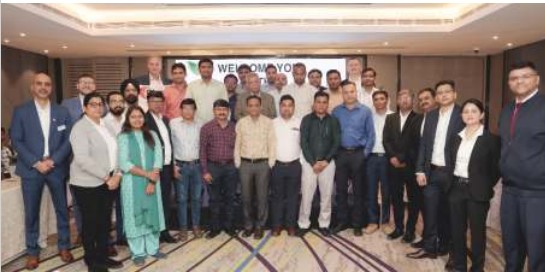 The session by Dirk Holger Steinhaeuser, Vice Head Dresden Engineering Office, Glatt Group, Germany, was on modular plant concepts for API and pharma DF production facilities. The focus points of his presentation included systematic design approach for future factories, design principles for innovative GMP facilities, modular and flexible plant concepts, innovative automation approach, and integration of robotic systems into dosage forms production.
The session by Dirk Holger Steinhaeuser, Vice Head Dresden Engineering Office, Glatt Group, Germany, was on modular plant concepts for API and pharma DF production facilities. The focus points of his presentation included systematic design approach for future factories, design principles for innovative GMP facilities, modular and flexible plant concepts, innovative automation approach, and integration of robotic systems into dosage forms production.
Compared to a classic project approach, the advantages of a modular solution are obvious. Shorter project lead times for the planning and construction of new production facility, faster expansion of existing production, and accelerated conversion of existing facilities and premises are some of them.
As with Glatt’s classic planning approach, modular planning also follows the principle: “Process first. Planning from the inside out”. Glatt designs efficient processes for mono-product and multi-purpose production facility.
In general, a modular approach is possible for all planning considerations and in all project-relevant disciplines. This opportunity to apply the modular approach exists in all project phases, even in the concept phase of the project.
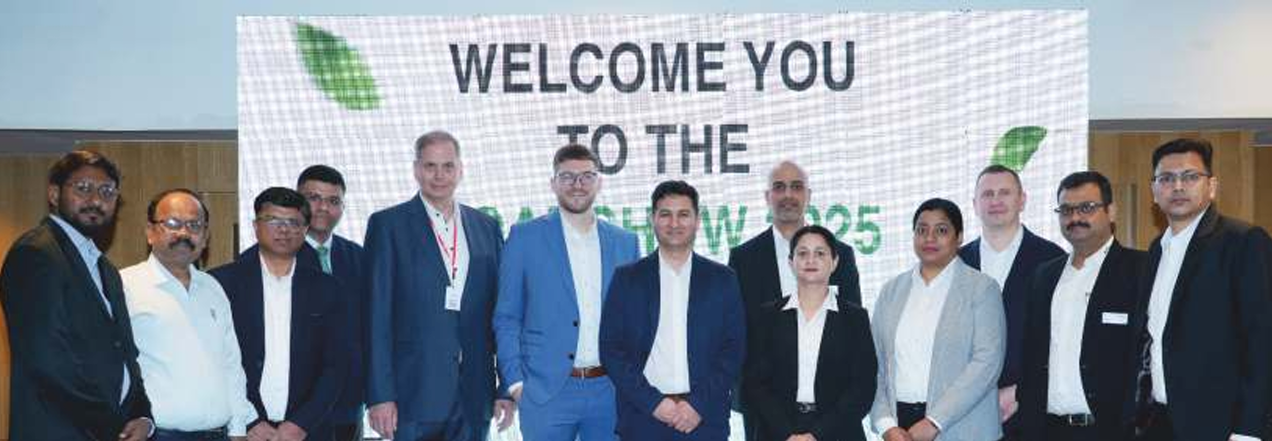
Modular considerations for a project usually start with the smallest functional units, through rooms and overall functional areas, overall functions, the entire building and site master plans including expansion options.
Cutting-Edge Sterile Filling Lines
Thorsten Meiser, Director Sales Turnkey, Optima Packaging Group, deliberated on Annex 1 and cutting-edge sterile filling lines. Optima offers advanced aseptic filling machines capable of handling various sterile product formats like syringes, vials, and cartridges, with features like high-speed filling capabilities, precise volume control, and comprehensive in-process controls, allowing for efficient production of ready-to-use (RTU) pharmaceutical products across different batch sizes, from R&D to commercial production; all while adhering to stringent quality standards.
Optima is the home of turnkey – one of the few providers on the market to offer comprehensive turnkey solutions. Thanks to its innovative CSPE approach (Comprehensive Scientific Process Engineering), which uses digital twins and detailed simulations, Optima can seamlessly integrate filling lines with isolator and lyophilizer (freeze-dryer). With this preemptive synergy, you can be sure that all elements of the sterile environment will work together perfectly and that you won’t have to worry about any nasty surprises on site when assembling large units.
Pharmaceutical manufacturers need the flexibility to process a wide range of ingredients, containers and packaging materials. Optima’s MultiUse systems are designed to offer the perfect mix of efficiency and versatility. They can cover all kinds of applications in pharmaceutical filling processes. These systems are yet more proof of its commitment to delivering comprehensive, integrated solutions that cater to the pharma and biotech industry’s varied needs.
Sustainable, Flexible, and Traceable Solutions for Parenteral Packaging
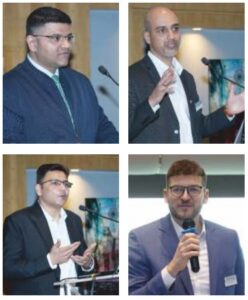 The session by Konstantin Gerbold, Strategic Product Manager, Uhlmann Pac-Systeme GmbH & Co. KG, Germany, was on sustainable, flexible, and traceable solutions for parenteral packaging.
The session by Konstantin Gerbold, Strategic Product Manager, Uhlmann Pac-Systeme GmbH & Co. KG, Germany, was on sustainable, flexible, and traceable solutions for parenteral packaging.
Parenteral packaging is becoming increasingly important as the number of parenterally delivered medicines rises across the world – examples include vaccines as well as diabetes medication and weight loss injections. Uhlmann’s Packaging Competence Team finds the right solution for individual requirements.
Parenteral packaging refers to secondary packaging for pharmaceutical products for injection, infusion, inhalation or implantation into human or animal bodies. Uhlmann offers a range of solutions for these requirements, ensuring comprehensive reliability and product protection, drawing on more than 75 years of experience in packaging parenteral products.
The LiPro feed solution for vials, ampoules and cartridges and the SyPro feed solution for syringes have already proven their effectiveness on numerous blister machines and the Parenteral Tray Center 200.
Assigning critical process parameters to clearly marked products not only increases the efficiency of packaging parenteral products but also ensures patient safety.
With the future-oriented Pexcite platform, Uhlmann offers a wide range of software solutions, including a Track & Trace application for clear traceability of products. Medical device tracking starts on the product level during the packaging process, ensuring maximum pharmaceutical safety in order to ensure patient protection.
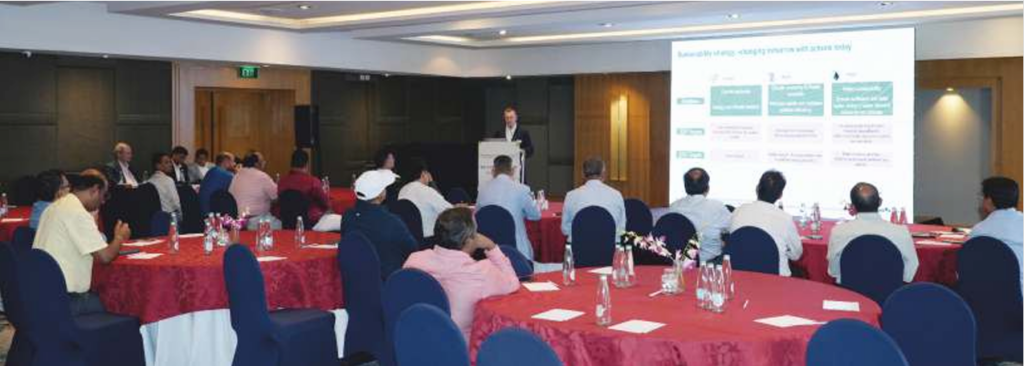 Uhlmann stands for pharmaceutical safety and flexibility:
Uhlmann stands for pharmaceutical safety and flexibility:
Flexibility regarding products: Systems need to be able to process various different products and components and in rapid succession, e.g. ready-to-use cartridges in the morning and then vials with syringes in the afternoon. They also need to be able to follow the product life cycle of parenteral products from vials to syringes through to injectors.
Flexibility regarding packaging: From folding cartons, plastic trays and cardboard trays to blisters, clamp packaging and paper trays the machine must be able to process all types of packaging. A wide range of inserts, such as measuring spoons, package inserts or booklets, must also be taken into account in the packaging process.
Flexibility of packaging formats: Large, medium and small formats as well as batches smooth format change-over is particularly important here.
Packaging parenterals in a way that ensures safe processes and sustainability is becoming increasingly important for pharmaceutical companies. With the innovative solutions from Uhlmann Pac-Systeme, customers can significantly increase efficiency in this area and improve the sustainability of both the process and the individual products.
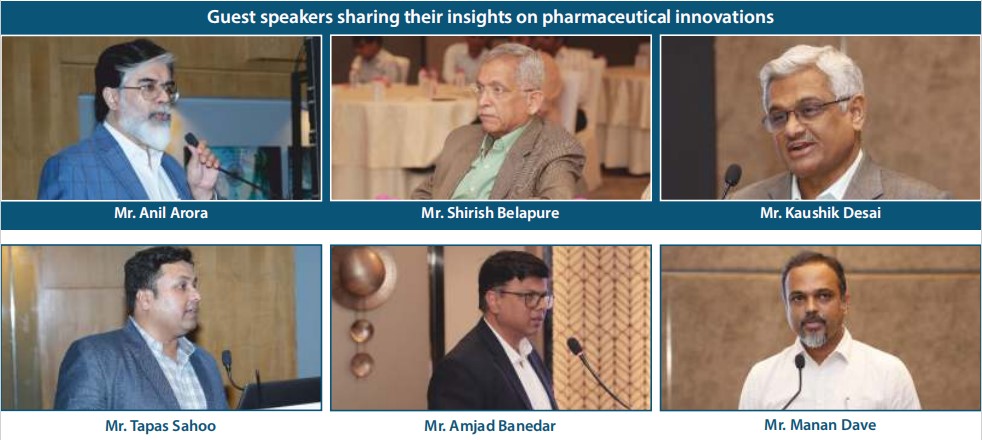
Digitization and CSA for Future Pharma Factories
Manan Dave, Associate Director/Head – Validation & Engineering QA), Kemwell Biopharma, spoke on digitization and CSA for future pharma factories. Digitization can help with Computer Software Assurance (CSA) by reducing costs and cycle time, and improving quality and compliance. CSA is a newer approach that emphasizes critical thinking and risk-based assessment over documentation and testing.
Streamlined validation processes can help companies bring products to market faster. CSA helps ensure that software meets quality and compliance standards. By eliminating unnecessary activities, CSA can reduce costs and cycle time. It helps companies identify and assess risks early in the validation process. Dynamic trace matrices can help companies ensure that requirements have been tested and understand the impact of failures.
CSA focuses on patient safety, product quality, data integrity, critical thinking, risk-based assessment, automation, and validation activities performed by other entities. CSA can help companies achieve a quality-centric mindset, rather than a compliance-centric mindset.
The ‘Smart Machines and Future Factories’ roadshow by UhImann, Optima, and Glatt, also included case studies executed in India (Parenteral Packaging) presented by Varun Sethumadhavan and Ashwini Shinde from Uhlmann India.
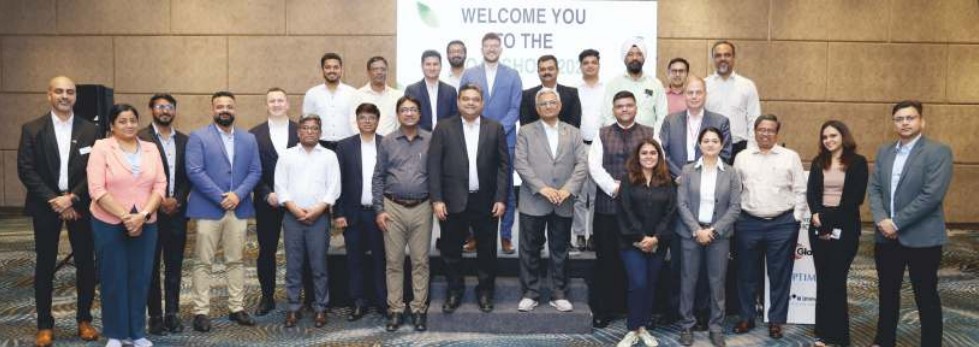
Exclusive
IPA’s 10th Global Pharmaceutical Quality Summit
Articles
Key Insights and Best Practices By Dr. Tarun Chugh
A Seasoned Perspective By Manan Dave
By Todd Martin, Natoli Engineering Company, Inc
Infocus
Presented by UhImann India, Optima, and Glat
Kevin Process Technologies
Tests and Process Optimization in Hyderabad



